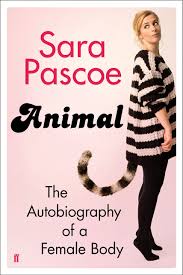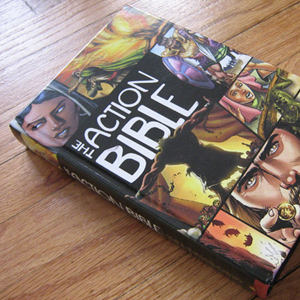
Stand-up comic Sara Pascoe appears regularly on television shows such as QI, Mock the Week and Live at the Apollo. She has just published her first book, Animal: An Autobiography of the Female Body. It covers such topics as love, romance, sex, relationships, body image, rape and consent, and is published by Faber & Faber.
Sara will appear at the Stoke Newington Literary Festival on Saturday 4 June: tickets available here. For a full list of events, visit the festival's website.
Your book is about the evolution of the female body. What would you like women to come away from it thinking?
I guess the ideal situation would be that they’d enjoyed it, and that maybe they had learned something about themselves, or forgiven themselves for something, or that they would feel inspired to learn more and read some more books, or to talk to their friends about certain things. Maybe there’ll be a journey of self-discovery: ‘Ooh, I could be more confident, or do I need to work on this?’ Just trying to be kinder to ourselves. That’s what I’d love.
And what would you like men to come away thinking?
The nicest thing that’s happened so far - and obviously, the book just came out, but some of my friends read it before: my friend Ellis wrote me this message saying that he would never want his daughter to go out with any boy who hadn’t read my book. That was such a lovely thing to say. I’ve had a lot more feedback from men than from women, I think because for them it’s a real insight into a very subjective female point of view. Also the whole chapter on consent is interesting for boys to think about, as well as something women are dealing with.
Do you think stand-up comedy’s the one area of the media where a woman’s appearance doesn’t determine her success?
It would be great if that were true - but if it were true, they wouldn’t make us wear make-up on television. And you try being a woman saying "Hey, I don’t want to wear make-up on Mock the Week this week." They’re like "But how will they see your face? You’ll be invisible!" I do think there’s a different element with stand-up - you can make fun of what you look like, and there’s an acceptance of what you look like.
Do you think that if women spent less time on our appearance, we’d be more successful than men?
I think there’s a time tax, yes. Using the example of comedy, when I do a job for TV, I have to spend so much more time getting ready - in wardrobe and make-up and hair - than the boys do. I always think that those two hours to go over your notes can make a real difference, especially when it’s last-minute and you’re changing things, or things are topical.
Has researching Animal changed your views on things?
Yes, because I understand a lot of things about human instinct and how we evolved better, so I feel that I understand myself and other people better. It’s also increased my understanding of the difference between men and women, about hormones. I’ve learned that lots of things don’t have an answer - there isn’t a definitive, it’s just lots of arguments and what suits you on that day.
What would you say to my five-year-old daughter, who doesn’t want to have hair on her legs because princesses don’t have any?
I’d tell her that princesses do have hair on their legs, and that princesses sometimes choose to get rid of the hair - silly princesses! I’d draw hair on all of her dolls and give them really heavy leg toupees.
If you have a daughter, will you let her play with Barbie dolls?
If you tell your child they can’t have a Barbie, they’ll want one, so I think you should treat it with a little bit of lightness. "Look how she wouldn’t be able to stand up! She can’t do anything, she’s too faint because she never eats!" I’d tell them that food is strength, it’s how we get strong and we play, and Barbie just lies there waiting for Ken to do everything.
Do you think you would gender-neutralise a potential daughter’s wardrobe?
No, I don’t think so - all the studies they’ve done have shown that you confuse children more. I’ve got two nieces, and one thing I try to do is always compliment them on their intelligence and their bravery and their kindness and their generosity. Because it’s tempting to say "you’re so beautiful, you’re so pretty".

